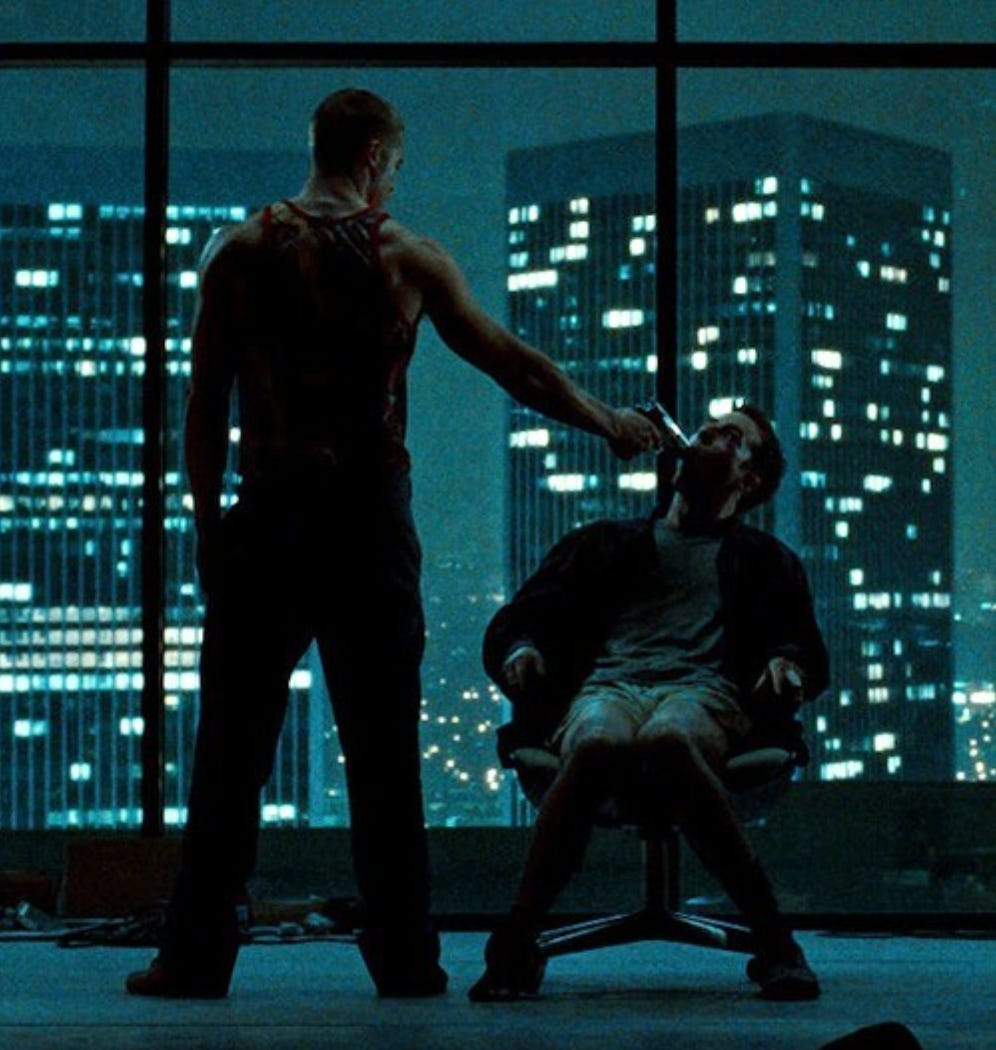Question: What separates humans from other animals?
Well, the brood consensus among scientists and philosophers is something like our ability to reason; it involves our intellect and language capacity.
And this intuition even goes back thousands of years with scholars identifying our intellect as what it means to be made in the image of God.
But more than this, humans are intrinsically inclined to engineer, create art, and build cool stuff, just like ants and their ant hills and bees and their bee hives. But unlike the ant and the bee — or any other living thing on earth for that matter — what is drastically different about humanity in what we create, is our passionate love to destroy it.
Fyodor Dostoevsky also noticed this tendency in humanity back in the 1800s. In Notes from Underground, he wrote:
Man likes to make roads and to create, that is a fact beyond dispute. But why has he such a passionate love for destruction and chaos?
Of course this is a rhetorical question. Dostoevsky knew the reason why men like to break things and cause chaos; but, what’s curious in his explanation is why he calls this mode of destruction, man’s most advantageous advantage.
Far from Rational
Despite the intelligence that humanity has been endowed with, there is clear evidence that we humans — both en masse and on an individual level — behave in such a way that is anti-rational.
As Fyodor Dostoevsky pointed out in Notes from Underground:
… one may say anything about the history of the world — anything that might enter the most disordered imagination. The only thing one can’t say is that it’s rational.
To some extent, this was a response to other contemporary thinkers who held the opposite view. They essentially affirmed that all barbarous activity would cease once reason and science had completely re-educated human nature.
Or in other words, after you’ve successfully injected the logic of science into enough human brains, the outcome would be:
No more murders.
No more abuse.
No more road rage.
No more bad.
Of course, the presupposition here is that the widespread adoption of science will, in virtue of its all-good nature, rub off on us a moral intuition. Much as if it were the word of God.
Furthermore, Dostoevsky noted that if such a world were to ever exist, it would indeed result in something like a utopia. Or what he called, the Crystal Palace: A place of perfection without crime, suffering, or surprises.
Sounds nice, but here’s the catch…
Dostoevsky’s conviction was that man can’t live in a world without suffering. Because the way he understands it, suffering is the fuel for a man’s sense of meaning. He wrote:
I am convinced that man will never give up true suffering- that is, destruction and chaos. Why, suffering is the sole root of consciousness.
Moreover, he remarked that this commitment to suffering isn’t just in the context of man vs. society—like in the way men wage war agains other tribes—but that it’s way more prevalent in the context of man vs. himself.
In sync with Carl Jung’s understanding of the shadow, by forcing people to live in a ‘Crystal Palace’, you suppress their creativity — because creativity naturally involves destruction and chaos.
Consequently, because creativity gets repressed, the pressure of its energy builds up in the psyche. It builds and builds until it eventually breaks through aggressively at some point.
And the kicker is this: you’re not consciously aware of it when this occurs (hence, its existence as your shadow).
So what comes out as a result?
Raw, unmitigated chaos.
This is something you see played out in the novel, Fight Club.
It’s the story of a man, Tyler Durden, whose creative energy aggressively forced its way out. At first, it manifested as insomnia and then developed into a full-blown shadow personality: a creation of Tyler’s psyche that moved and acted in every way that the conscious Tyler did not.
Now, if we’re to rewind the tape and diagnose the root cause of Tyler’s creative outburst, the culprit is seemingly innocuous. It was embodied consumerism and the slow, mind-numbing, 9–5 lifestyle. A consistent process as quiet and exacting as Chinese water torture.
So don’t be fooled; the danger is very real…
I am Jack’s repressed shadow, scratching at every corner.
Moral of the story: find a creative outlet before it finds you.
…
This is part 1 of a 3-part series.
An aside: In a world obsessed with optimization and positive thinking, it’s no wonder so many people feel lost when they experience inner conflict. The discomfort of not knowing who you are, what you want, or why you sometimes self-sabotage isn’t a sign of failure; it’s a sign to explore the depths of your being.
If this sounds like you—if you’re feeling stuck between who you are and who you think you should be—existential coaching might help you find the clarity, freedom, and authenticity you’re craving.
If this is the case, I invite you to DM me for more information on working 1:1 together.





While creativity can indeed come from suffering, to think that is the sole root of human innovation is to miss what it is to be creative, and what the rest of us derive from the work of creative people. Krista Tippet expressed it well (https://onbeing.org/blog/does-creativity-have-to-come-from-suffering/), saying:
“I think what we actually want (and rely on) from those in creative roles is courage, not their misery.”
Sharing with my 16 year old son who is currently in a Dostoyevsky phase (a healthy one!).